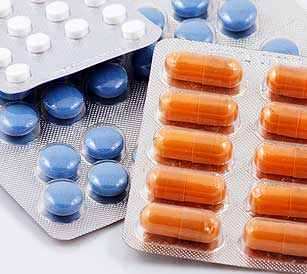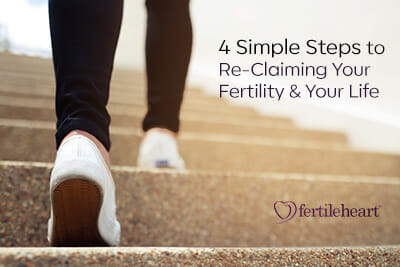DHEA Triples Fertility:
Facts and Fiction on DHEA Benefits
Can DHEA Increase a Woman’s Chances of Getting Pregnant? Is DHEA Side Effects Free?
In recent years DHEA has become a more and more widely prescribed supplement. What exactly is driving this trend? What would be the best way to proceed? What are DHEA benefits? Could one cause harm by ingesting DHEA, especially if you are trying to conceive? Is DHEA side effects free? Does testing your blood levels provide adequate protection?
DHEA studies:
A DHEA fertility study released in July, 2010, conducted by scientists at Tel Aviv University claims that the growth hormone DHEA, or 5-Dehydroepiandrosterone, may increase a woman’s chances of getting pregnant. While the report presents these findings as the latest breakthrough fertility drug, DHEA has been used by women trying to offset premature ovarian failure for years.
Let’s take a look at the “breakthrough” study. Of the 33 women who participated in the study, 20 women were in the test group. They took 25 mg of DHEA three times a day for 40 days prior to starting treatment. 23% of the women in the test group conceived. All 33 women were also receiving fertility treatments. Is this data a reliable foundation for the claims of the Tel Aviv research team that “DHEA triples fertility?” For the women who did conceive while taking DHEA, their pregnancies could well be attributable to a number of other factors. Professor Adran Schulman, the lead author of the study as expected, called for more research and was quoted saying: “We need to look into what the drug actually does to make the body more fertile,” he said.
A 2019 DHEA study published in Endocrinology examined the potential effects of DHEA supplementation on the IVF outcomes of patients who fulfilled a set of newly established criteria for patients with poor prognosis. Although patients in the study group had higher fnumbers of retrieved oocytes, day 3 embryos and top-quality day 3 embryos than those in the control group, clinical pregnancy rate, live birth rate, and cumulative live birth rate did not differ between the control and the study group.
Proceed with caution: Testing & the use of DHEA with hormone sensitive dis-ease states:
In the next few paragraphs I hope to summarize my views on DHEA based on: my personal experience with elevated FSH levels, what I have gleaned from researching the role DHEA plays in female and male endocrine system; reviewing the comments from interviews with mainstream and holistic fertility specialists about the use of DHEA in their practice; reviews of studies that indirectly document the effect of certain foods and lifestyle factors on DHEA levels, and finally my observations of clients in the last decade and a half of counseling who supplemented with DHEA as well as clients who chose not to do so.
Recalling professor Shulman’s comment, don’t doctors and patients need to know what the drug actually does in order to protect ourselves from unforeseen or not readily identifiable side effects?
Several fertility specialists who do prescribe DHEA recommend testing blood levels prior to starting supplementation, and then using it only short term with carefully monitored dosages, which appears to be a sensible approach.
What I find troubling is that even women with endometriosis, fibroids, PCOS are now routinely prescribed DHEA by mainstream fertility specialists as well as naturopaths and acupuncturists.
Here is a quote from an email I received from a 33 year old woman with endometriosis reporting on the results of her seventh IVF cycle after supplementing with 75mg of DHEA for 14 weeks: “The reason I have joined the call is that we have just abandoned IVF #7 due to our worst response ever and new problems with estrogen levels and womb lining.”
Knowing , that diseases such as endometriosis are triggered among other things, by estrogen dominance or in the case of PCOS an overabundance of male hormones, is prescribing a hormone which artificially enhances estrogen production is the most sensible intervention? Joseph S. Dillon, MD, associate professor of medicine at the University of Iowa Carver College of Medicine.has voiced similar concerns. Dr. Dillon is reported saying that since DHEA affects estrogen production, anyone suffering from hormone sensitive conditions such as endometriosis, fibroids, ovarian or breast cancer should avoid DHEA supplementation.?
Increasing DHEA naturally
What then do we do? My take on all of the above: DHEA is a steroid hormone produced by our adrenal glands. It’s a precursor to the male hormone testosterone and to estrogen, one of the key female hormones. So the first thing that comes to mind is that your falling DHEA levels are a way your adrenals ask for attention. They say: we’re exhausted and overworked, and as such production is down. Taking DHEA might temporarily make you feel more energized, and thus energized, you will then continue the lifestyle that triggered the problem, without addressing the underlying cause of the imbalance. In other words, your body’s call for help is silenced.
Whatever it is that ultimately needs attention descends deeper into hiding. Temporarily.
My recommendation would be to strengthen adrenal health before moving on to supplementation with growth hormones such as DHEA. There are ways to naturally boost your DHEA levels by paying attention to how you feed yourself. At this point it should be a no-brainer to start with crossing off the usual culprits of ill health: white flour, sugar, caffeine, heavily preserved and processed foods. All of them are likely to contribute to a drop in DHEA levels.
All of the suggestions on Food as a Fertile Heart Ovum Tool will support your adrenal health.
What the current superficial terminology identifies as “stress,” has an immense effect on adrenal function. In OVUM terms, stepping out of Orphan reality with the right Imaginal Remedy or Body Truth Sequence can without a doubt free up energy and relieve the pressure of denial and help repair adrenal health. In conventional wisdom we refer to denial as chronic mental and emotional stress.
Following your imagery practice with a simple restorative yoga pose, such as lying with legs resting against the wall (your body forming an L) will also do wonders for your adrenals. Your adrenals will also appreciate and reward you for making sure that you get at least eight hours of uninterrupted sleep every night.
These are just a few adjustments you can make to help revitalize adrenal help without hormones like DHEA.
So the question I would pose is this: Before we tinker with powerful artificial substance, how can we create an environment that will help the body naturally be where it needs to be?
Whatever path you choose, as always, my hope is that you do your own thinking and listen to the the impulses and promptings of your inner fertility-authority.
Sources:
http://www.israel21c.org/health-supplement-triples-fertility-israeli-researchers-find/
Alkatib AA, Cosma M, Elamin MB, et al. A systematic review and meta-analysis of randomized placebo-controlled trials of DHEA treatment effects on quality of life in women with adrenal insufficiency. J Clin Endocrinol Metab 2009;94:3676-81.





